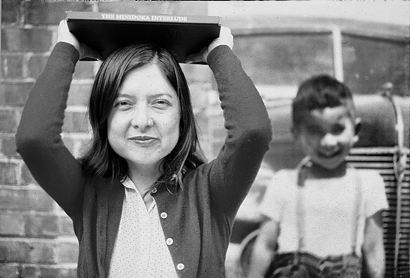Two plays looks at wartime Japanese Americans and Tokyo diplomat in Lithuania
Senpo Sugihara and Kenji Ima never met. One was a little American boy and one was a grown Japanese man, with an Atlantic Ocean and a continent in between them, but there was one thing they had in common. It was called World War II.
They also, by sheer coincidence, share something else in common: each is the subject of a play being mounted Off Broadway this month.
Senpo (or, per Google, Sempo) Sugihara died in 1986, at age 86. There is a tree in his name at Vad Yeshem and a park in his name, both in Jerusalem. As Japanese consul in Kauna, Lithuania, in 1940, he saved the lives of perhaps 6,000 Jews by issuing handwritten visas that enabled them to escape the Holocaust—and did this in quiet defiance of the Nazis, the Russians and his own furious superiors.
“I merely did what I thought was right,” was all he would later say.
Kenji Ima is now in his 60s, a retired professor of sociology at San Diego State University. A nisei, or second-generation American-born Japanese, who was born in Seattle, he was four years old when, at the start of the war, he and his entire family were packed off by the United States government to the Minidoka Internment Facility in the desert near Hunt, Idaho. He was seven when the war and the internment ended. It took him a long time to talk about it.
His story, and by inference the story of those camps in which 100,000 Japanese-Americans were held throughout World War II, is told, quite beautifully, in “The Interlude,” a multimedia piece written by his daughter Kim Ima, who also appears in it. It’s at La MaMa through October 24.
The story of the Japanese consul in Lithuania, is told in “Senpo Sugihara: The Japanese Schindler,” a sympathetic but, as conveyed, anyway, by a bumpy, spacey English-language written version, rather peculiar play by Koichi Hiraishi in which one must envision Japanese actors playing uptight, self-involved Eastern European Jews.
It was presented here in 1998, to good reviews, and is now being staged again, in Japanese—repeat, in Japanese, with English subtitles—for four performances only, October 21 to 24, co-directed by the playwright and Shoichi Yamada, at the Kaye Playhouse of Hunter College.
Ima’s “The Interlude” takes its title from a yearbook, “The Minidoka Interlude,” that the young people at that internment camp (“the prisoners,” calls them) put together in 1943—words and pictures of their life and times rather like a high school or college yearbook.
Perhaps the most astonishing thing about it is an end piece that begins, without irony of any kind: “We, as residents of the Minidoka Relocation Center at Hunt, Idaho, take pleasure in dedicating this book to the ‘America of Tomorrow,’ and reaffirm our faith in the principles and ideals of the founders of the United States,” and looks forward to victory “over the forces of aggression and greed”—i.e. Japan and Germany.
That yearbook—her father’s own copy—is in Ima’s play. And so is her father, by voice and photo.
“Not only is my father alive and a [native-born] U. S. citizen, but his mother is too, my grandmother, Mary Ima. She’s 91 and really wants to see the show, but since she can’t fly right now, I’m going to have to try to take it to Seattle,” said the pert, vivacious Greenwich Villager, who wrote “The Interlude” in her apartment near Sheridan Square.
“When I was growing up,” she said, “the camp was like a family story that people knew but didn’t talk about. Then in junior high school, I wrote a report about it. I asked my father some questions. He told me about the camp, but then he wouldn’t talk about it again.
“No, I haven’t been to Minidoka, but my father has been, twice, since the war, once last summer. There’s very little there now. He came back and said: ‘It’s almost as if nothing was there.’ Personally,” said Kenji Ima’s daughter, “I think that bothers him.”
Kim Ima’s other roots, through her mother, retired schoolteacher Leslie Miller Ima, are Eastern European Jewish. Perhaps one or another of her mother’s people were among those whose lives were saved by Senpo Sugihara. Stranger things…
In 1991, under the first Pres. Bush, an apology was issued to the 100,000 onetime Japanese-American detainees of WW II, and each living individual awarded $20,000 compensation. Kim’s grandmother passed her $20,000 along to her grandchildren.
“For years, I did not know what to do with it, and I waited. And then this project came into my head.”
Kim Ima has a considerable career outside of and before this project. She’s a member of La MaMa’s Great Jones Repertory Company, and was Cassandra in Andre Serban’s 1996 La MaMa production of “The Trojan Women.” She has also produced two short films and one full-length one, “Robot Stories,” about love in a technological age.
“The Interlude” combines live actors, projections, music, a standing cardboard full-size photo of Kim’s father as a little kid at Minidoka and portions of a 1940s Office of War Information propaganda newsreel about the happy healthy life of the happy healthy internees in Minidoka and other such camps.
No, John Ashcroft had nothing to do with it. Before his time, so they say.



































